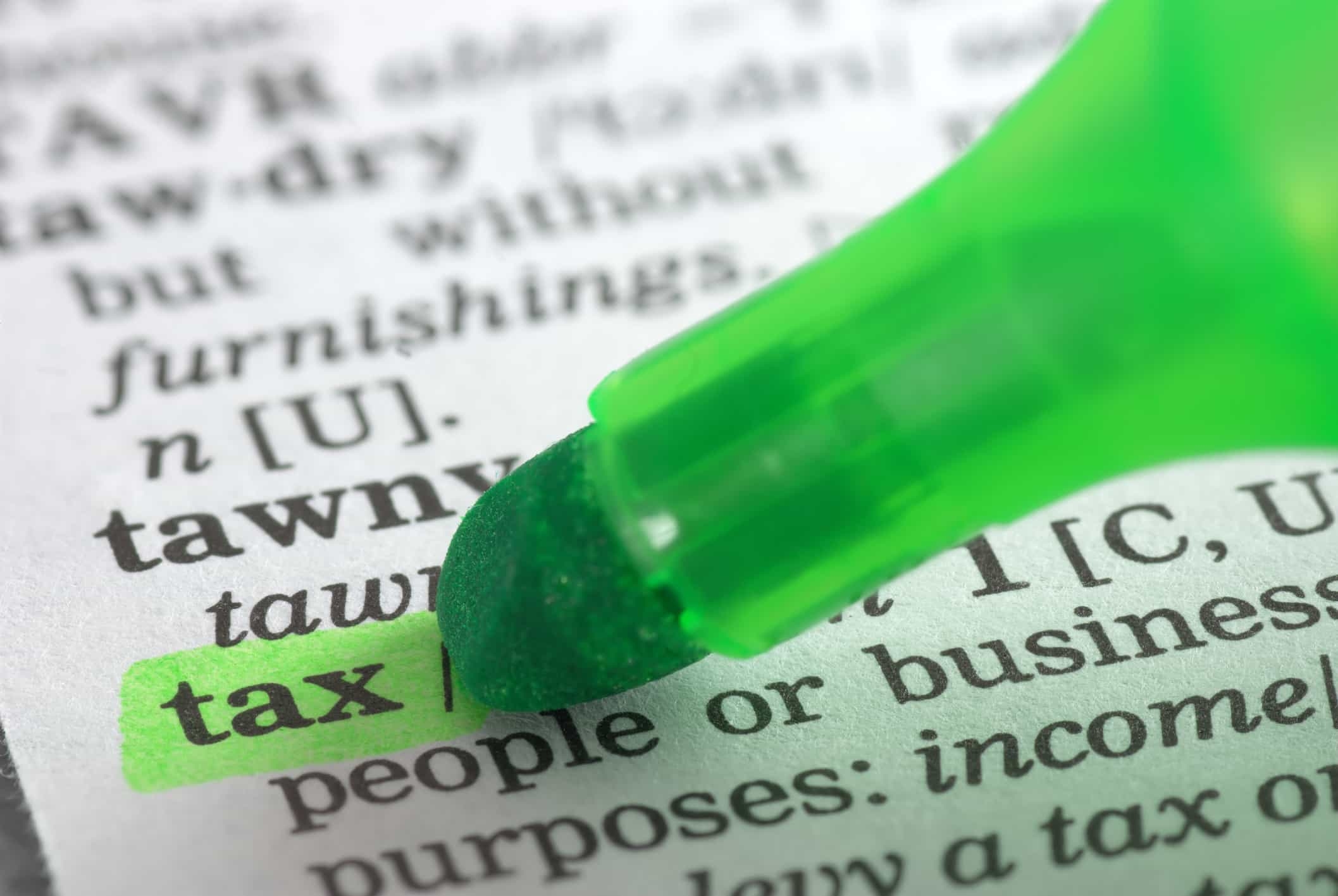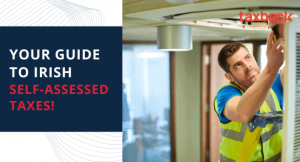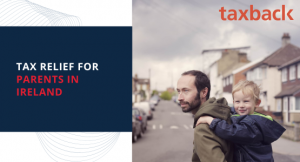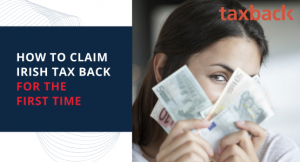The expert’s guide to filing an Irish self-assessed tax return
With the Irish tax deadline right around the corner, Taxback Consumer Tax Manager, Marian Ryan has shared her top tips for filing your return.
Approximately 15% of the Irish workforce are self-employed. And each one of these workers will likely be required to file a tax return in Ireland by the end of October.
But it is not just self-employed individuals that must file. In fact, many PAYE workers who earn income outside their normal job may be obliged to file too.
Unfortunately, filing your tax paperwork is not always straightforward. And it can be difficult to determine which expenses you are entitled to claim in order to reduce your tax bill.
If you’re feeling stressed about the prospect of filing your tax return, don’t worry! Watch our FREE Self-Assessed Tax Webinar
Here Taxback Consumer Tax Manager, Marian Ryan shares everything you need to know about filing your self-assessment tax return in Ireland.
First things first - do you need to file?
If you earn income outside of the PAYE system, it’s likely you will need to file a tax return and you will be considered a chargeable person for self-assessment purposes.
This means that you are responsible for determining your own tax liability.
In short, you are required to file a self-assessed tax return if:
- You’re self-employed
- You’re a contractor or sub-contractor or work on RCT (Relevant Contracts Tax)
- You’re a landlord
- You received any income in addition to PAYE income e.g. capital gains, profits from investments/cryptocurrency
- You’re a director of a company or a proprietary director with shareholding in excess of 15%
- You belong to an employee share scheme
Some PAYE workers will also be required to file a tax return where:
- Their total Gross non-PAYE income is in excess of €30,000, or net assessable income is in excess of €5,000
- Or they have non PAYE income (less than €5,000) and do not have it coded into their tax credit certificate
- They open a foreign bank account
- They acquire a material interest in an offshore fund or foreign life policy
We take the hassle out of filing your Irish tax return
Implications of being a chargeable person
If you are a chargeable person, there are a couple of things you need to do to be sure you are tax compliant in Ireland:
1. Register for Income Tax (Form TR1)
The first step is to register for income tax. By doing so, you are informing Revenue that you have additional income to report and that they should expect a tax return from you.
In order to do so, you must complete a Form TR1 or TR1 (FT). Once completed, you will receive a 'Notice of Registration' verifying your registration.
2. Submit Your Tax Return to Revenue before 31 October the following year
The deadline will be extended to mid-November if you file online. You must also pay your tax bill before the deadline. The type of return you need to file – Form 11 or Form 12 will be dictated by the type of income and the amount of additional earnings you may have. More on this below.
3. Pay Your Preliminary Tax
Preliminary tax is an estimate of the income tax, Pay Related Social Insurance (PRSI), and Universal Social Charge (USC) that you expect to pay for a given tax year.
Your preliminary tax bill will be based on either:
-
90% of the tax due for that tax year
-
100% of the tax due for the immediately previous tax year
-
105% of the tax due for the tax year pre-preceding tax year

Which tax return documents do you file?
The type of tax form you'll need to fill out is determined by the amount of the self-assessed income you have and how much you make as a PAYE employee.
Form 11
If your taxable income exceeds €5,000 or your gross non-PAYE income is more than €30,000 per year, you must first register as a self-assessed individual with Revenue, and then file a Form 11 tax return.
You must also make a tax payment for the preceding year's income by October 31 each year.
Form 12
If your taxable income is less than €5,000 per year and your gross non-PAYE income is less than €30,000, Form 12 is the correct return to file.
Claiming your expenses
There is a wide range of expenses that can be claimed in order to reduce your tax bill.
The most important thing to remember is that you can only claim for expenses that you have ‘wholly’ and ‘exclusively’ occurred for the purposes of your trade. You can't include costs that were incurred exclusively for personal use.
For example, if you are using your car both for personal and business purposes, you will be able to claim only the expenses incurred during the time you used it for business purposes.
Common business expenses that can be claimed
Workspace
There are a number of expenses that can be claimed on a tax return if you pay for the use of office space, including:
- Rent
- Utility bills - heating, lighting, telephone, and internet
- Premises insurance
Wear & Tear
Annual wear and tear allowance of 12.5% can be claimed (over 8 years) for the cost of capital expenditure on plant and machinery.
Motoring
If you use a car for business purposes, you may be entitled to claim a number of expenses, such as:
- motor tax
- insurance
- service
- tires
- driver's license costs
- NCT
- repairs
Professional Services
If you pay for the services of an accountant or financial agent to help you to file your tax return, you can deduct these costs on the return.
Download your FREE Self-Assessed Irish Tax Guide
Ptersonal expenses you can claim
There are a number of common expenses which qualify for tax relief, such as:
Medical expenses
Every Irish taxpayer is entitled to claim tax relief on the qualifying medical expenses incurred during the tax year. Examples of qualifying medical expenses include:
- Doctor and consultant's fees
- Treatments/items prescribed by a doctor or consultant
- Laser-eye surgery
- Ambulance transport
- Routine maternity care
- And more
If you have paid for any of the above expenses, you are entitled to claim 20% of the cost back in tax relief.
What’s more, if you are a higher rate tax player and you have incurred nursing home expenses, you can claim back 40% of these costs in tax relief.
Tuition fees
If you have paid college fees for yourself or a loved one, you may be entitled to claim 20% of the cost back in tax relief.
Rental Expenses
If you own a rental property, you may be entitled to claim tax relief if you incurred any of the below expenses:
- Mortgage Interest
- RTB Registration
- Repairs and Maintenance/Wear and Tear
- Advertising Expenses and Estate Agent Fees
- Insurance Premiums
- And more
We take the hassle out of filing your Irish tax return

Managing your Preliminary Tax
As we mentioned above, aside from your income tax liability, you will also have to pay preliminary tax when you file your self-assessed tax return.
In order to work out the amount of preliminary tax you should pay, you can choose from one of the options below:
- 90% of the tax due for that year
- 100% of the tax due for the preceding year
- 105% of the tax due for the pre-preceding year
Note: If you are filing a Form 12 tax return (instead of a Form 11 return), you will not need to pay any preliminary tax.
Filing your self-assessed tax return on time
Under self-assessment, you must file your tax return by 31 October of the year following the year to which the return relates. If you are filing online, the deadline extends to mid-November.
It is crucial to file your tax return before the deadline. If you miss the deadline, you will be required to pay interest and penalties in addition to your tax payment.
The deadline for people who pay and file online is extended to mid Novermber each year.
Late-filing charges
If you file your tax return after the deadline, you may incur a number of different charges, including:
- within two months of the filing date: 5% of the tax owed, up to a maximum of €12,695
- over a two-month period: 10% of your tax liability, up to €63,485
Interest accrues from the payment due date and is calculated at 0.0219% for every day or portion of a day.
To file with Taxback, all you need to do is complete our short registration form and have your expense receipts close by. Our team will take it from there!
Ask for help! Why you should consider enlisting the support of a tax agent
It is possible to file your own tax return (for example, Form 11 or Form 12) using Revenue Online Service (ROS).
The only advantage of filing yourself is that it’s free.
However, it can be difficult to manage your tax paperwork alone. And the burden of ensuring you are claiming every relief and credit you’re entitled to will lie solely with you.
What’s more, if Revenue selects your return for Audit, you will have to manage this additional time-consuming admin on your own.
Alternatively, if you would like support with filing your tax return, Taxback can help you.
Again, the good news here is that accountancy fees are a tax-deductible expense, so in fact, our services will end up costing you nothing.
Here are five reasons you should file your Irish self-assessed tax return with Taxback:
Individual Consultation
When you apply with Taxback, we will assign an Irish tax specialist who will guide you through the process of filing a return to optimise your position and reduce any tax bill you may have.
Reduced Tax Liability
Our tax specialists will aim to reduce your tax liabilities by advising on all relevant credits and deductible expenses that you are entitled to.
Reliable
We have been filing Irish self-assessed tax returns for more than 25 years. Every return we manage is prepared by TMITI qualified Irish Tax Technicians & reviewed by ITI or ACA qualified Tax Professionals.
We are the go-to tax advisory service for some of the largest employees in Ireland and are frequently called upon by the main news outlets for commentary on all things about taxation.
Efficient
We take care of the entire process from start to finish to ensure a fast and comprehensive process. All of your forms are completed and signed quickly online and this eliminates the need for printing or scanning documents.
Peace of Mind
You can be sure that your position has been examined, that you are fully compliant with Revenue and you have claimed all allowances and credits.
To file your Irish tax return easily online, simply register here with Taxback.

Top Tax Filing Tips from Taxback
Don’t delay – why wait for the deadline rush to file? By preparing your tax documents today, you can forget about tax for a full year. What’s more, Revenue systems can often slow down in the days leading up to the deadline so it’s always important to give yourself plenty of time to file.
Research qualifying expenses – you will be surprised at just how much can be claimed on your tax return. And when you file with Taxback, our team of Irish tax experts will carry out a full review of your tax situation to ensure you are claiming every tax relief and expense you are due.
Hoard everything! It’s important to keep records of all your supporting documentation for a period of 6 years in case Revenue selects your tax return for audit.
We take the hassle out of filing your Irish tax return




